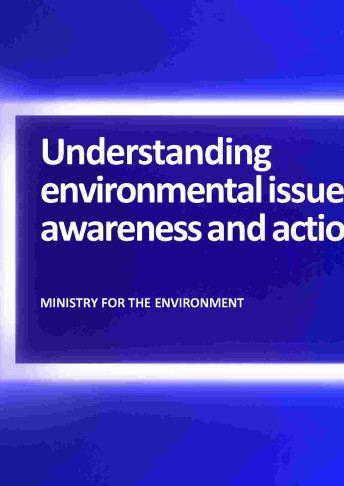In 2023, the Ministry for the Environment (the Ministry) commissioned The Research Agency (TRA) to undertake audience research on New Zealanders' attitudes towards and awareness of environmental issues.
This abridged report presents some of the key findings. The information in this independent research does not necessarily reflect the views of Ministry.
In 2023, the Ministry for the Environment (the Ministry) commissioned The Research Agency (TRA) to undertake audience research on New Zealanders' attitudes towards and awareness of environmental issues.
This abridged report presents some of the key findings. The information in this independent research does not necessarily reflect the views of Ministry.
Summary of findings
- Environmental concerns continue to be the fourth most important issue facing New Zealanders, trailing behind more immediate concerns like cost of living, crime and housing. The level of awareness increased significantly from 20 per cent (in 2022) to 25 per cent.
- Seventy-nine per cent of New Zealanders claimed that recent extreme weather events and natural disasters are a top-of mind issue, ranking sixth equal with mental health.
- When prompted, people claimed to have a good level of awareness of freshwater, climate, waste and urban planning environmental issues (averaging 75 per cent), but less awareness of biodiversity issues (60 per cent).
- Kiwis are more likely to take action when tasks bring immediate additional value to their lives (such as cost savings from reducing electricity use). Kiwis are less likely to engage in actions that take longer to produce an outcome (such as planting trees or preventing the spread of freshwater pests).
- Topical environmental issues (such as extreme weather events), provide an opportunity to promote actions that reduce environmental risks but also provide immediate benefits to people.
